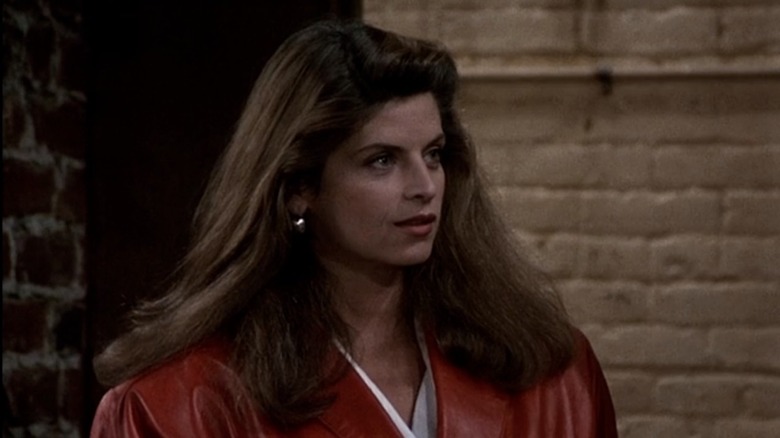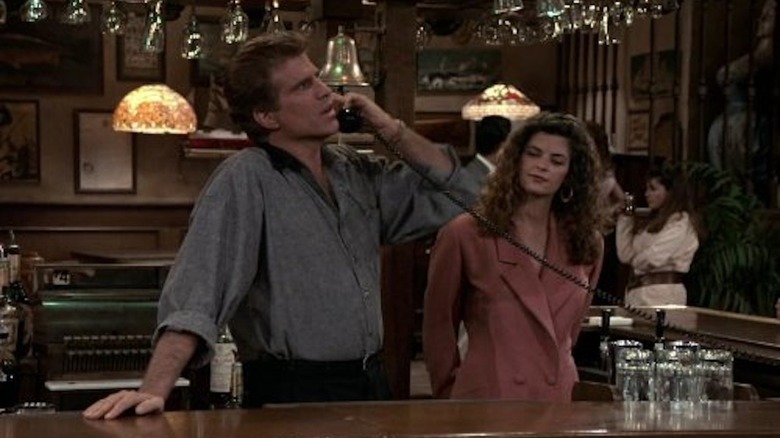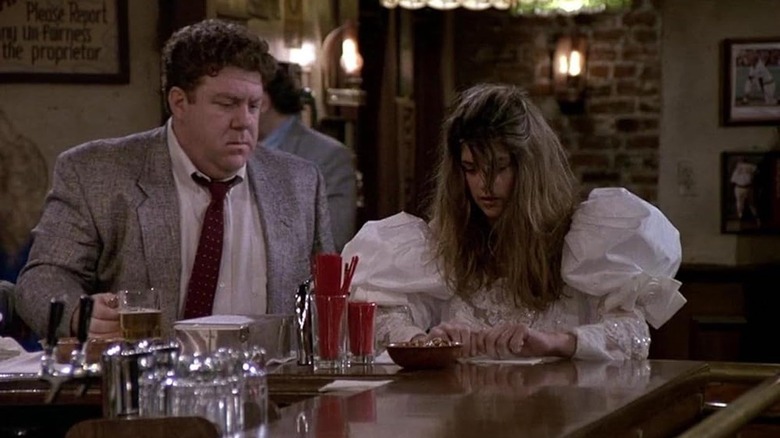Why Kirstie Alley's Cheers Casting Had Network Execs Hesitant
"Cheers" was the third highest-rated show on television when Shelley Long opted to quit the series at the end of its fifth season and pursue movie stardom. Though the show had long since settled into its ensemble groove, the on-again/off-again Sam Malone and Diane Chambers romance was the primary generator of water-cooler chatter. Moreover, the chemistry between Long and Ted Danson was the stuff of a series showrunner's dream (in fact, Long is credited with saving Danson's career). Their banter was worthy of Spencer Tracy and Katharine Hepburn. You don't just go out and find another Katharine Hepburn. Could "Cheers," brilliant and popular as it was, survive Long's departure, especially when fans had so much invested in Diane?
This was the conundrum faced by casting director Jeff Greenberg, who'd joined "Cheers" during Long's last season. He knew chasing the next Long was courting disaster, so he looked for an actor who could hold her own with Danson and the rest of the gang without suggesting so much as a hint of Long's established personality.
Fortunately, Greenberg knew exactly who he wanted. He'd seen an up-and-coming actor named Kirstie Alley in a Mark Taper Forum production of Tennessee Williams' "Cat on a Hot Tin Roof." She'd found unexpected humor in the part of Maggie the Cat, and he knew she'd fit right in with the "Cheers" ensemble. He just had to convince, well, everyone: Alley, her agent, the cast, and, finally, the network. This was anything but easy.
A superb audition that no one saw
According to an interview with the Television Academy, when Greenberg got in contact with Alley's agent, he discovered he wasn't the first to come calling. Undaunted, and without dropping the name of the series, he asked if Alley would be interested in doing television. According to Greenberg, the agent said, "Well, I'll tell you that all the networks want Kirstie for a TV series. She doesn't want to do a TV series. Let me talk to her." Greenberg didn't have to wait long for a reply. "He calls back, says, 'She still doesn't want to do a TV series, but she'd love to do 'Cheers.”"
Having cleared the first hurdle, Greenberg introduced Alley to the producers and the cast. This went swimmingly. Per Greenberg:
"She was a vision. They had a great meeting, and we all were optimistic about who she was in terms of the kind of role they were looking for. Then Ted Danson had lunch with Kirstie, and they clicked."
They then arranged an audition where Alley read with Danson and Rhea Perlman. Again, not a single hitch. Alley belonged on "Cheers." There was just one problem: they didn't shoot the audition. So when they met with NBC executives to tell them Alley was absolute perfection, they had nothing to show.
Sharon Stone as Rebecca? It almost happened!
The meeting with NBC brass did not go well. As Greenberg recalled:
"They said, 'We love Kirstie, but is she funny?' We said 'Yeah,' and they said, 'Well, show us.' And there really wasn't any ammunition to show them. We kept telling them, 'This is who we want, you've got to trust us.' There's chemistry there with her and Ted and her and Rhea, and they wouldn't buy it. They communicated that they were not comfortable with that. 'We really need you to see other people.'"
They did as requested, and wound up reading some soon-to-be stars in Sharon Stone, Kim Cattrall, and Marg Helgenberger. Greenberg thought the network preferred Madeline Smith Osbourne (who's probably best known as John Travolta's smoldering rebound girlfriend in "Urban Cowboy"), but they wouldn't relent on Alley. "Finally," said Greenberg, "Brandon Tartikoff, who was then the head of the network, said, 'At this point if we can't trust these guys then who can we trust? Let's give it a go.'"
They gave it a go, and Alley gave them six brilliant seasons. Their smartest decision was to play with Danson and Alley's chemistry without trying to duplicate the headlong romance that made Sam and Diane so special. We can argue who was better for the show, but you have to admit that "Cheers" didn't miss a beat when Long left.


